VE Day: I remember waking up thinking everything is going to be alright
- Published
VE Day: 'It was wonderful to go back to normal again'
Joy and relief, happiness and confusion, even a hint of disbelief - VE Day in Scotland was a complicated mix of emotions.
After six long years of watching loved ones disappear off to war, making the best of it at home and then enduring unimaginable sadness, grief and exhaustion, the news finally came that it was over.
At least, it was over in Europe, after Nazi Germany surrendered.
On 8 May 1945, Prime Minister Winston Churchill made an announcement on the radio that the war in Europe had come to an end.
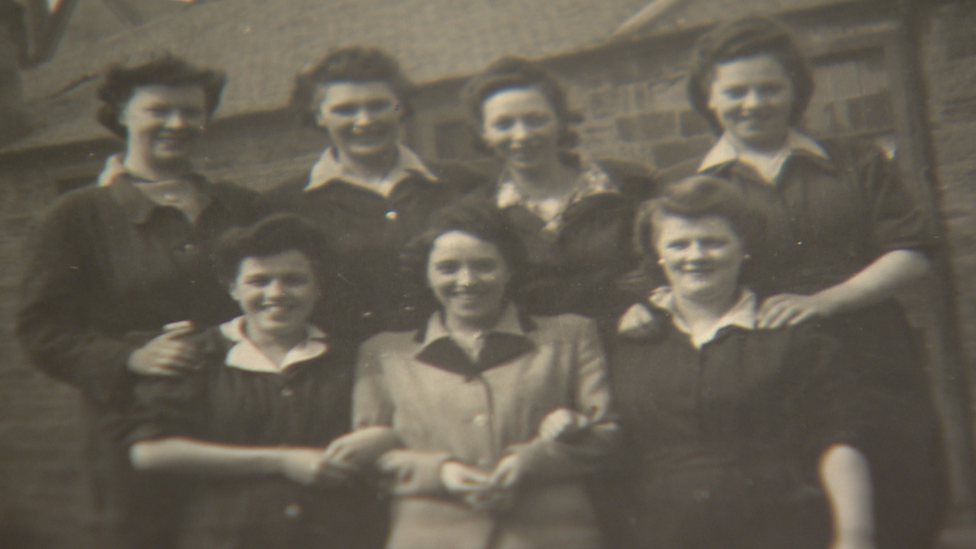
Janet (bottom right) was one of seven women working on shipbuilding in the yards
For Janet Harvey, a young 22-year-old who had spent the first four years of her working life alongside 1,000 men at a Clyde shipyard, it was the best news she had ever heard.
The focus of Glasgow's celebration, like events before and since, was the city's George Square.
Heavily scarred by the Blitz in 1941, Glasgow, the Clydeside and Clydebank were ready to celebrate.
Those who were there describe fairy lights and bunting hastily put up to decorate the square and the City Chambers.
Janet, who is 97 now, describes the Tuesday that changed everything.
'Cannot explain how good it was'
"I remember the feeling of waking up and you knew that everything was going to be all right," she told the BBC.
"We were in George Square and we were all dancing and singing and cuddling each other, it was like the end of the world."
Janet says: "The atmosphere was wonderful. Everyone was happy and running about. You could not explain how good it was.
"It was a great feeling to know it was all over."
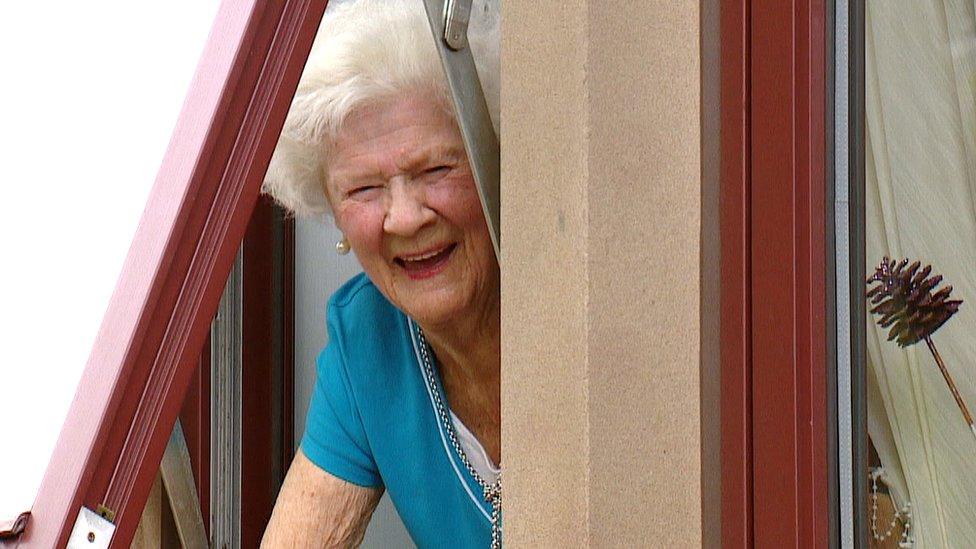
Janet Harvey finds it hard to put into words the euphoria of the VE Day celebrations
Janet's life changed completely that day. Even though she would go on to spend another year working in the shipyards she barely tolerated, she could see an end to it all and the start of the rest of her life.
She says: "I was working seven days a week, going away to Clydebank in a tram car and didn't get home until 20:00 at night and the next thing we'd be away in the shelter with the bombs coming over at night. Then up at 07:00 to get the tram. It wasn't pleasant for an 18-year-old."
Janet was with her aunt when she heard the news on the radio.
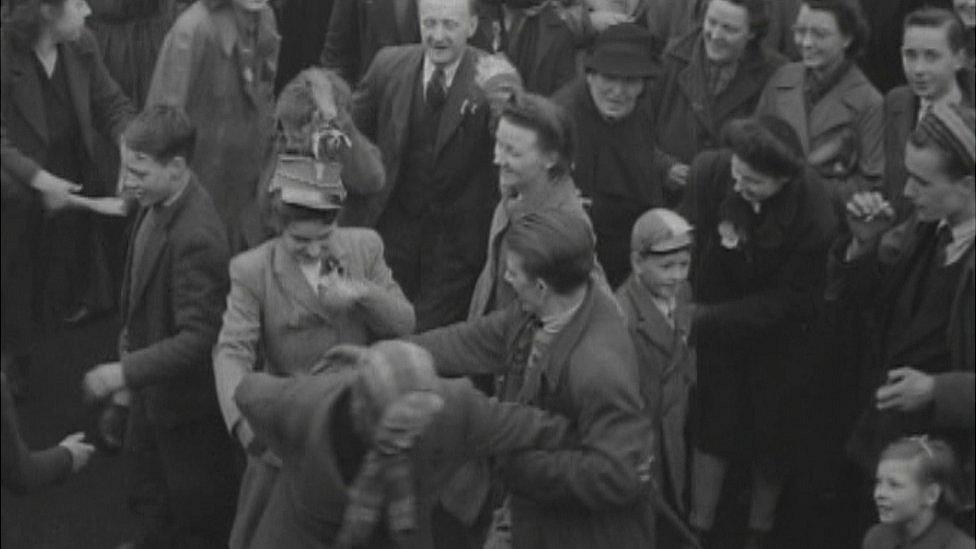
Janet was one of the crowd of Glaswegians who flocked to George Square to dance when she heard the good news
She says: "We were screaming - I said 'give me back my life!' I thought to myself I had better enjoy it. You don't know what is round the corner. After the war you think anything can happen again.
"In the square I was dancing - there were 500 or 600 people there. What a relief it was to know you could go to your bed at night and not have to get up again."
'We threw our hats in the air'
For Edinburgh woman Margaret Landel, VE Day was a more military affair.
She joined the Women's Royal Naval Service (WRNS) in 1943 on a whim.
Working for a whisky producer, she was exempt from service, but signed up anyway.
She says: "One day I was walking along George Street and I saw this notice "We Need You" so I went in and I got the form. I thought I'd try for the Wrens. I just thought it would be something different. I liked the uniform."
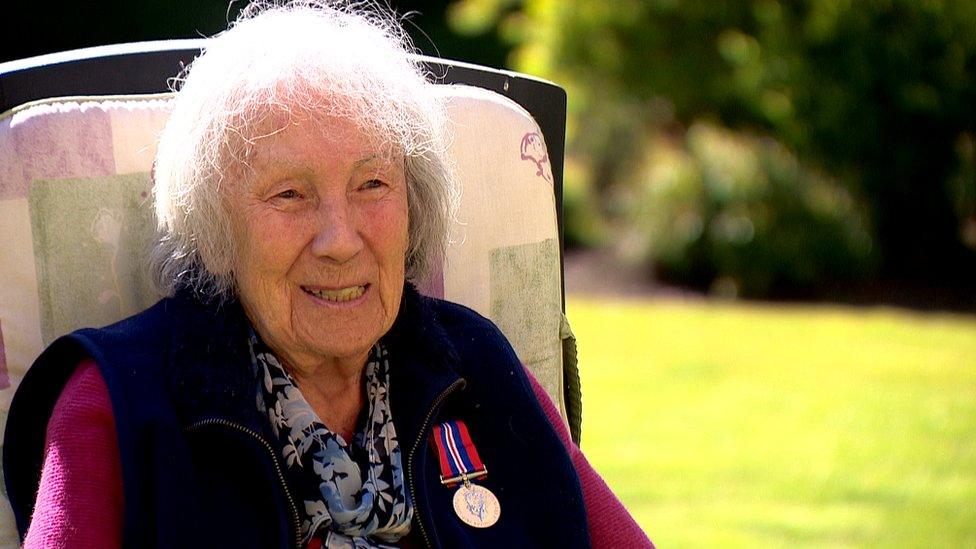
Margaret Landel served in the WRNS
She trained in London at Mill Hill during the time when the V-1 bombs (doodlebugs) were landing. She earned 15 shillings a fortnight and remembers being thrown to the floor by a blast.
Margaret started as an officer steward, looking after three officers, one of whom was Winston Churchill's niece, before being stationed in Lowestoft in Sussex. There was a US military base nearby.
She says: "We had some fantastic dances. We saw Glenn Miller's band play. And I learned how to jive. The Americans had better food, better entertainment."
By the time VE Day came around she was back in Scotland, at Port Edgar near South Queensferry, working in the mail office.
She remembers it like the scene of a film.
Margaret says: "We got called into the hall and the senior officer came and told us it was all over.
"We couldn't believe it, threw our hats in the air.
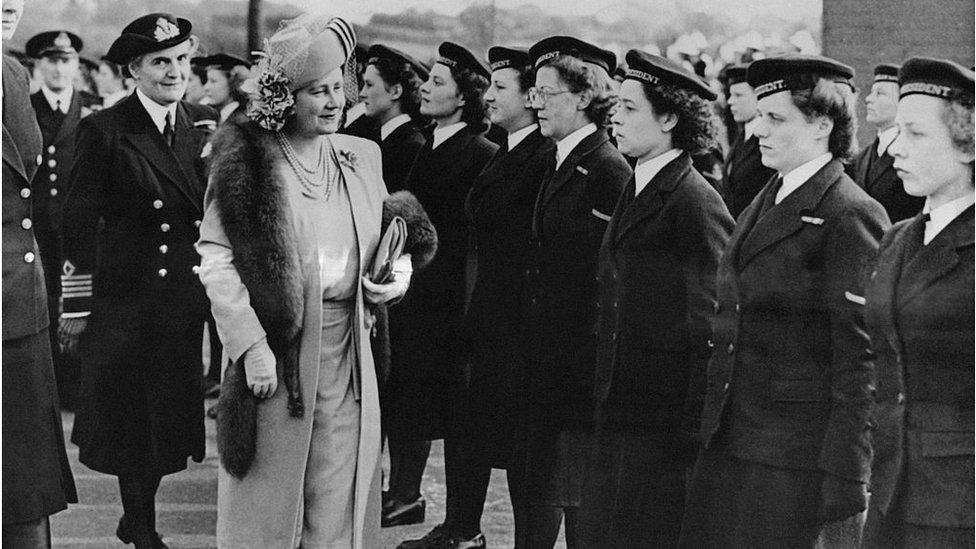
The Wrens were the female branch of the Royal Navy
"Someone decided to have a bonfire and we had a bugler - he used to do the reveille in the morning - he was out giving us a tune - it was a great show and an experience. I just couldn't believe it had actually happened. We had a feeling something was going to happen but couldn't believe it."
But for Margaret, like many, the day was tainted by sadness.
She says: "I found the saddest time when I was down in London and saw people living in the underground shelters. And the bombing - so many of their homes were destroyed.
"It is very important to tell these stories. We don't want people to forget. Hopefully we don't have to go through that again."
'It wasn't over for everyone'
For some veterans, though, VE Day passed them by.
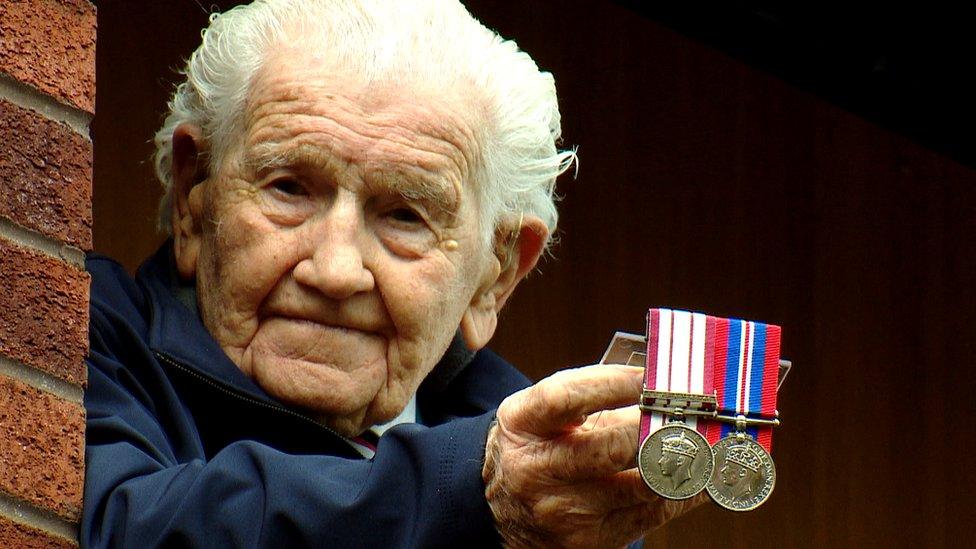
Frank Coyle was still fighting in Japan when it all ended in Europe
The war would continue to be fought in the far east until VJ Day (Victory in Japan) came on 15 August after the US dropped atomic bombs on the cities of Hiroshima and Nagasaki.
Glasgow man Francis Coyle, 93, was a Commando in the Royal Marines, sent to fight against Japan in Singapore, helping to liberate two prisoner-of-war camps.
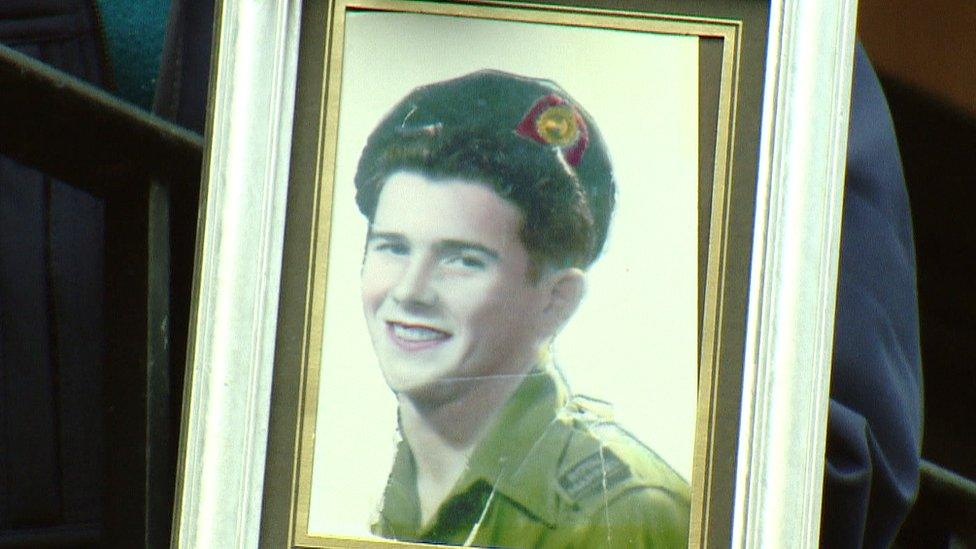
Frank was a Commando at the end of World War Two
For him VE Day was barely registered on board a troop ship.
He said: "Going out east, we had missed the D-Day landings. We heard about VE Day through the ship's radio. The ship let off gun shots but that was it.
"The war in the Pacific was still going on. We had no celebration of VE Day at all. In 1947 I was demobbed.
"When I see it now, VE day was so great, dancing in the street and I missed all that."
Leave us your thoughts and recollections about VE Day on our Share Your VE Day Memories page:
https://www.bbc.com/historyofthebbc/research/ve-day-memories
- Published27 November 2018
